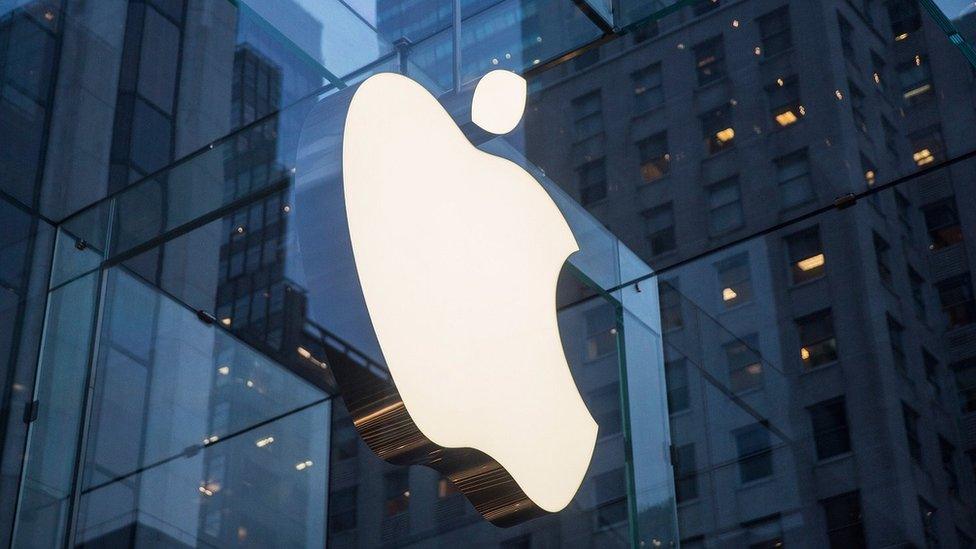Apple should pay €13bn Irish tax, argues EU lawyer
- Published

A legal adviser to the European Court of Justice has argued a ruling allowing Apple to avoid paying €13bn (£11bn) in back taxes should be overturned.
The move is the latest in the long-running saga between the EU, the US tech giant and the Irish government.
Three years ago, a ruling which found Apple had been given illegal tax breaks by the Irish government was overturned.
But Advocate General Giovanni Pitruzzella at the Court of Justice said the case should be reviewed again.
He argued a series of legal errors had been made and the ruling in Apple's favour had failed "to assess correctly the substance and consequences of certain methodological errors that, according to the Commission decision, vitiated the tax rulings".
The legal opinion is not a final verdict and is non-binding, but the court does tend to agree with such opinions in the majority of cases.
In response to the latest twist, an Apple spokesman said that the initial ruling allowing the firm to avoid paying back taxes was "very clear that Apple received no selective advantage and no state aid".
"We believe that should be upheld," they added.
In 2016, the European Commission decided Apple had received unfair preferential treatment from the Irish government, allowing it to pay a much lower rate of tax than other companies.
The Commission said this constituted illegal aid given to Apple by the Irish state.
The affair became a symbol of the Commission's efforts to clamp down on what it saw as massive tax avoidance by multinational giants.
The Irish government has argued that Apple should not have to repay the back taxes, deeming that its loss was worth it to make the country an attractive home for large companies.
Ireland, which has one of the lowest corporate tax rates in the EU, is Apple's base for Europe, the Middle East and Africa.
Although corporation tax rates for businesses are set nationally, and are not subject to the EU's jurisdiction, the trade bloc does have extensive powers to regulate state aid and in this case, it argued that by applying very low tax rates to Apple, Ireland was granting it an unfair subsidy.
Two years ago, the lower court, known as the General Court, ruled that the European Commission's decision that Apple should pay back taxes was legally flawed and should be set aside, but that ruling itself could now be overturned after the latest twist.